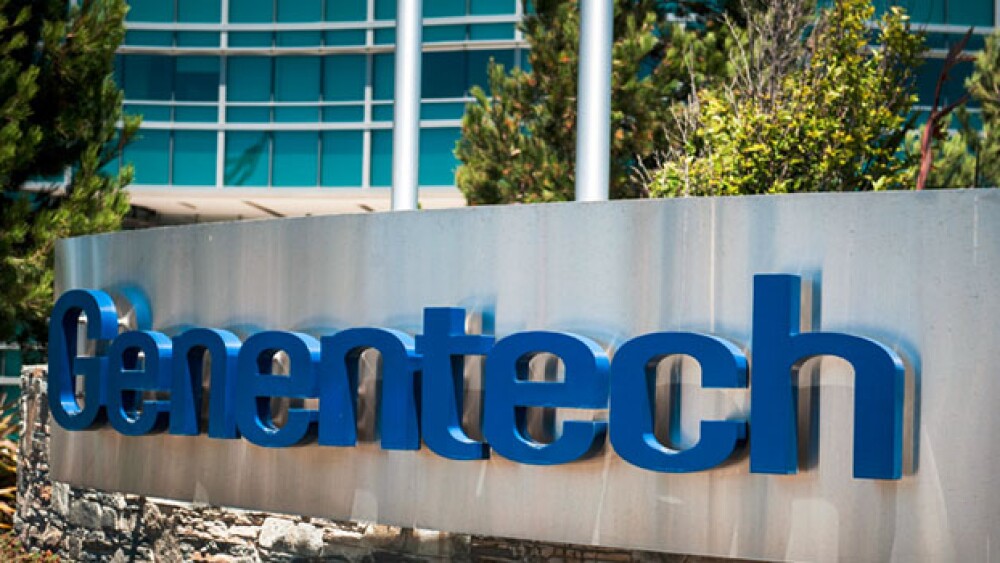Genentech announced positive topline results from its Phase III PEMPHIX trial evaluating Rituxan (rituximab) compared to the immunosuppressant drug mycophenolate mofetil in patients with pemphigus vulgaris.
Genentech announced positive topline results from its Phase III PEMPHIX trial evaluating Rituxan (rituximab) compared to the immunosuppressant drug mycophenolate mofetil (MMF) in patients with pemphigus vulgaris (PV).
PV is a rare autoimmune disease that causes blistering on the skin and mucous membranes. The disease can be dangerous, and treatment is usually with corticosteroids that suppress the immune system. If untreated, the disease can have serious complications that can be fatal. Before the use of corticosteroids were introduced in the 1950s, the death rate averaged 75%. PV can affect all races, genders and ages, but is most common in people of Mediterranean descent, eastern European Jews, people living in the rainforests in Brazil and middle-aged to older adults.
In the trial, patients with moderate to severe active PV that required 60 to 120 mg/day oral prednisone or equivalent were given either Rituxan plus MMF placebo or Rituxan placebo plus MMF. The primary endpoint was the percentage of patients who had sustained complete remission.
“The PEMPHIX study provides additional clinical evidence for the use of Rituxan for the treatment of pemphigus vulgaris,” stated Sandra Horning, chief medical officer and head of Global Product Development for Genentech. “These data also demonstrated that Rituxan may provide complete remission rates and successful tapering of corticosteroid therapy that is superior to MMF in adults with pemphigus vulgaris.”
Rituxan also met the secondary endpoints, which were cumulative corticosteroid dose, number of flares, time to sustained remission and time to disease flare.
Rituxan is approved for rheumatoid arthritis, granulomatosis with polyangiitis (GPA), and pemphigus vulgaris.
It’s been a good week for Genentech. Just yesterday the U.S. Food and Drug Administration (FDA) approved the company’s Polivy two months ahead of its target action date. Polivy (polatuzumab vedotin-piiq) is a first-of-its-kind anti-CD79b antibody-drug conjugate (ADC) used in combination with bendamustine plus Rituxan (BR) for patients with diffuse large B-cell lymphoma (DLBCL) whose disease recurred after or did not respond to multiple treatment regimens. The drug binds to the CD79b protein, only found on B cells, and releases the chemotherapy drug into the cells. ADCs are antibodies attached via molecular linker to chemotherapy drugs, which allows for more targeted delivery of the toxic chemicals.
The ADC technology used in Polivy was developed by Seattle Genetics and licensed to Genentech.
The FDA’s approval was based on the Phase Ib/II GO29365 clinical trial. It demonstrated improved clinical outcomes for patients with relapsed or refractor (R/R) DLBCL compared to the standard-of-care treatment. The original PDUFA date was in August, but the FDA’s Accelerated Approval Program allowed conditional approval of a drug that fills an unmet medical need for a serious condition.
More clinical trials will be needed to verify and further demonstrate the drug’s clinical benefit. The trial to-date showed that 40% of patients receiving Polivy plus BR achieved a complete response compared to 18% with BR alone. The trial also showed that 45% of the Polivy group plus BR achieved an objective response at the end of treatment compared to 18% of patients treated with BR alone. Also, in the Polivy plus BR cohort who achieved a complete or partial response, 64% had a duration of response (DOR) that lasted at least six months compared to 30% of patients in the only BR group.





